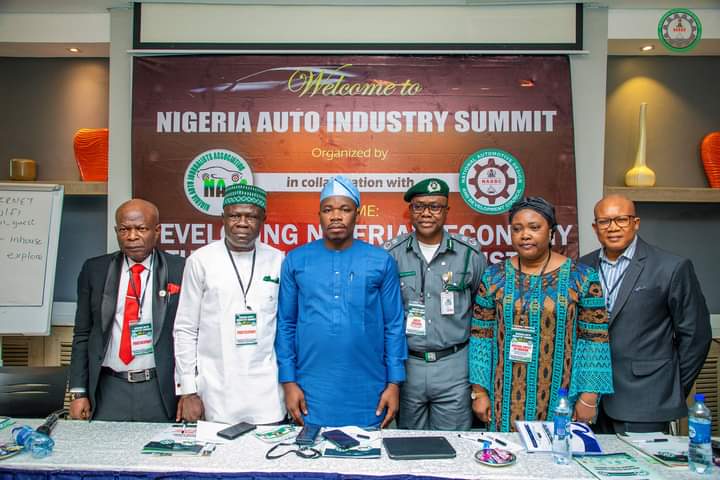The Director General of the National Automotive Design and Development Council (NADDC), Mr. Oluwemimo Joseph Osanipin, recently addressed the pressing challenges and opportunities within Nigeria’s automotive industry. Speaking at the inaugural Nigeria Auto Industry Summit in Lagos, Osanipin emphasized the need for collective action among industry stakeholders to pave the way for a prosperous future.
He highlighted that the sector faces significant hurdles, such as inadequate infrastructure and insufficient investment. Addressing these issues, he noted, is crucial for unlocking the industry’s full potential. He underscored the substantial growth prospects for Nigeria’s automotive sector, given the country’s expanding population and increasing demand for safe, reliable, and affordable vehicles.
“The Nigerian automotive industry holds immense potential. With a growing population and a rising demand for vehicles, the opportunities are vast. However, we also face significant challenges,” Osanipin remarked. He pointed out the heavy reliance on imported vehicles, which in 2023 saw the value of passenger car imports rise to ₦1.47 trillion—a 224.67 percent increase from 2022, according to the National Bureau of Statistics (NBS). This dependency, he said, strains Nigeria’s foreign exchange, hampers job creation, and stifles economic growth.
Despite these challenges, Osanipin expressed optimism about the sector’s progress. He highlighted the operational local assembly plants and the government’s commitment to fostering the industry’s growth. He emphasized the importance of collaboration with stakeholders willing to invest in local vehicle production, especially spare parts manufacturing. The recent inauguration of the Implementation Committee of the 2023 Nigeria Automotive Industry Development Plan (NAIDP) and the Federal Government’s adoption of locally assembled CNG-powered vehicles are testaments to this commitment.
In his address, the Comptroller General of Nigeria Customs Service, Bashir Adewale Adeniyi, represented by Comptroller Mankini Daniyan, stressed the need for enhanced collaboration between the Nigeria Customs Service (NCS), NADDC, Nigeria Auto Manufacturers Association (NAMA), and other stakeholders. He noted that the influx of used cars undermines the local automotive industry, weakening the naira and burdening local manufacturers. The enforcement of an import prohibition on vehicles older than 15 years aims to reduce the import of used cars and support the growth of Nigeria’s automotive sector.
Lagos State Commissioner of Transport, Mr. Oluwaseun Osiyemi, also spoke at the event, highlighting the auto industry’s role in driving economic growth, fostering innovation, creating jobs, and improving the overall quality of life. He reaffirmed Lagos State Government’s commitment to creating an environment that supports industry stakeholders, encourages collaboration, and attracts investment. “Through strategic partnerships and innovative initiatives, the auto industry can significantly contribute to the revival and growth of our nation’s economy,” Osiyemi added.
Executive Director of NAMA, Mr. Remi Olaofe, urged the government to revive the manufacturing of key components such as tyres, batteries, and glass. He pointed out that policy uncertainties and changing regulations have made long-term planning difficult for manufacturers. Olaofe also highlighted the challenge of accessing affordable financing, noting that the high interest rates offered by Nigerian banks impede expansion and investment in new technologies.
Minister of Industry, Trade and Investment, Doris Uzoka-Anite, represented by Deputy Director of Industry Development Department, Mrs. Olumuyiwa Ajayi-Ade, assured stakeholders of the Federal Government’s commitment to creating a supportive environment for the automotive sector. The Minister acknowledged existing challenges, including inadequate access to finance, limited local content in vehicle production, and the need for consistent policies. She called for collaborative efforts from government agencies, private sector players, financial institutions, and development partners to transform the sector into a significant driver of economic growth and development. “With the right policies, investments, and collaborative efforts, we can transform this sector into a significant driver of economic growth and development,” she stated.





